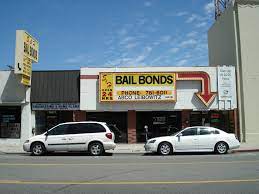In November 2022, the cryptocurrency exchange FTX was trading at an all-time low. About a month later, the Department of Justice issued an indictment against FTX’s founder, Sam Bankman-Fried, who was living in the Bahamas at the time. Fast forward two weeks, and Bankman-Fried is extradited to the United States. Two days later, he’s released on 250 million dollars bail

Pretrial Detention and Wealth
Bankman-Fried’s bail stands out for a few reasons. First, few defendants have had bail set so high. The New York Times reported that the most recent defendant with similar bail condition was Thomas Barrack – a Trump ally. Second, no money changed hands. The entire transaction was executed on paper. His bond was securedwith his parents’ home in Palo Alto, California and two undisclosed cosigners.
The Judiciary Act of 1789 first established the principle of a defendant’s right to bail. I’m not sure if the bail process worked well back then but the modern-day version is fraught with problems. The 1984 Bail Reform Actauthorized pretrial detention and created the practice of “paying” to be released. The law was widely criticized for violating due process rights – but the Supreme Court disagreed. Back then, only 29% of defendants were held in pretrial detention.
Today, the number of defendants held in pretrial detention is closer to 80%. Today’s pretrial detention system functions based on defendants’ ability to pay. If you are poor, you are more likely to tough it out in prison awaiting trial. If you are wealthy, you await trail at home.
Most people can’t just put their hands on tens of thousands of dollars in a matter of hours. Who’s there to help? The bail bondsman. Bail bonds has emerged as a cottage industry capitalizing on those who can’t post bail. It’s such a sprawling industry, there’s even a Bail Agent Network. Fees range from 10 and 20% of the total bail amount. Bondsmen have two functions: they post the bail for you – and they track you down if you fail to appear.
Ignoring the Rules
The United States’ system of criminal law is based on the assumption of innocence. Yet, the majority of individuals currently incarcerated have not yet been convicted of a crime. The poor and people of color are disproportionality affected by overcriminalization and mass incarceration in the United State. They are likewise disproportionally affected by bail system that is based on ability to pay.
Pretrial detention decisions that are based on ability to pay are direct violation of Americans’ civil rights. The ACLU is advocating for immediate change – leveraging their Smart Justice campaign to push for legislative change in states across the nation. Other advocates are calling for changes in judicial practice – citing a failure of judges to adhere to the legal standard.
Worsening the Odds
Currently Courts set bail in one of three ways: release with no bail (release on own recognizance), release after paying 10% of bail, or release after securing assets or real estate. The latter is what happened in Mr. Bankman-Fried’s case.
When determining bail, Courts consider a number of factors including defendants’ residence, the proximity of family, the nature of the crime, previous criminal offenses and the perceived danger to the community. Most states’ constitutions exclude bail for capital offenses, sexual offenses and serious felonies.
Proponents of the current bail system argue that pretrial detention is in the interest of public safety. That’s just one of many myths surrounding the pretrial process. Data show that pretrial release does not negatively affect public safety and that it may do more harm than good. What’s more, multiple studies have found that individuals released on bond do better with respect to recovery and rehabilitation. Most Americans agree – what we have now doesn’t work.
Participation in pretrial services is also associated with more favorable case dispositions and less severe sentences. Individuals who are detained during pretrial are four times more likely to be convicted. They also tend to receive longer sentences. In addition, pretrial detention increases the likelihood defendants will opt to skip trial and sign a plea bargain.
When you put all this together you have a system that leads to more favorable outcomes from the government’s perspective.
Purchasing Freedom
Recommendations for reforming America’s pretrial detention policies abound. Sadly, ideas like establishing a presumption of pretrial release are likely to meet strong resistance from prosecutors who are solely interested in winning cases.
Because Mr. Bankman-Fried had access to financial resources – he’s awaiting trial in Palo Alto, not Camp at USP Lompoc. Because he’s not detained, Mr. Bankman-Fried has unrestricted access to his legal team and can access medical and mental health care. He’s not living in unsanitary conditions and subjected life in an overcrowded and dangerous facility. In addition to all that, statistically speaking, he’s got better odds of a favorable outcome.
There are hundreds of thousands of Americans who, like Mr. Bankman-Fried, are eligible for bail. But unlike Mr. Bankman-Fried, they are detained simply because they don’t have sufficient financial resources. They are living in inhumane living conditions in prisons across America – from Michigan, to Alabama, to California. Their civil rights are being violated and they are more likely to be affected by the trial penalty because they can’t actively contribute to their own defense.
What more is needed to demonstrate that our bail system denies Americans equal protections under the law, is unfair and inhumane.
We can do better than this. We must.